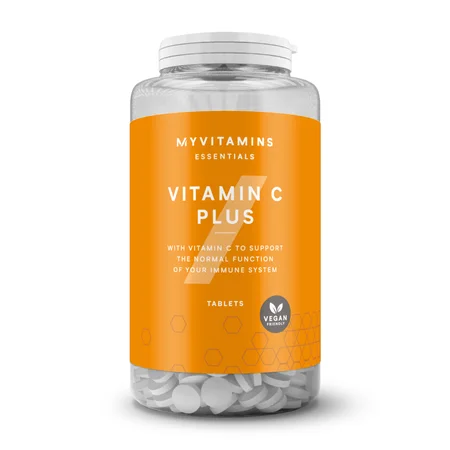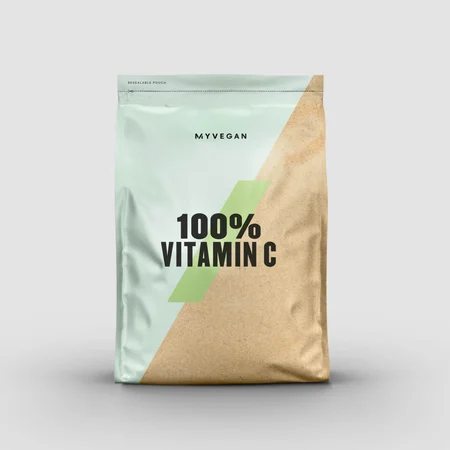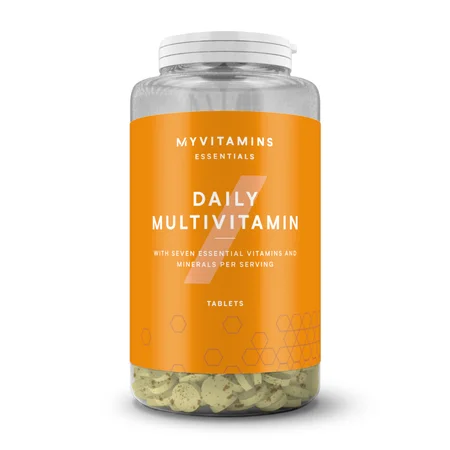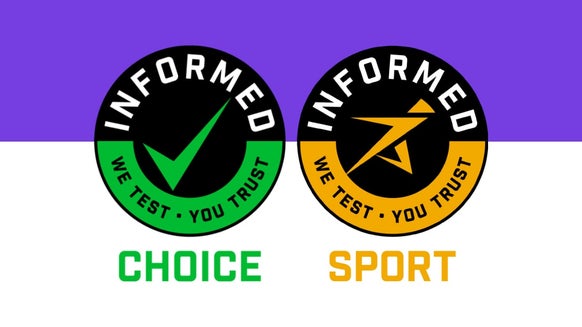Vitamin C | What is it? Benefits? Deficiency Symptoms? Sources?

Nutritionally reviewed by Claire Muszalski
If you’ve recently suffered from a cold, then someone’s probably told you to stock up on vitamin C. This vitamin is universally known for its influence on a healthy immune system, but there’s far more to it than just that, so stock up on some oranges and read up on the potential benefits below.
In this article, you’ll find:
What is vitamin C?
Vitamin C deficiency
Benefits of vitamin C
Side effects
Food sources
Vitamin C supplements

What is Vitamin C?
Vitamin C, also known as ascorbic acid, is a water-soluble vitamin that delivers a multitude of health benefits. It can’t be made by our body, so you need to consume it through our diet every day.
Most people know vitamin C as a booster for the immune system, but it’s also involved in plenty of other processes in the body. It helps to produce collagen to maintain connective tissues and heal wounds. It also enhances the absorption of iron from plant-based sources, which is crucial for vegans and vegetarians. It shows strong antioxidant properties, and ongoing research is investigating its role in anti-aging and disease prevention.1 Additionally, it’s involved in protein metabolism — making it of interest to those who exercise.
Vitamin C deficiency
Long term insufficient intake of vitamin C causes scurvy, which some people know as a disease that sailors would get when they were out at sea for long periods of time without fresh fruit (or other dietary sources). There are several signs of vitamin C deficiency:
1. Prolonged lack of vitamin C means that collagen cannot be formed, which can cause various tissues in your body to break down.
2. The first symptoms of vitamin C deficiency tend to be:
- Fatigue and weakness
- Gum inflammation
- Easy bruising and poor wound healing
- Red-blue spots/bruises on your skin1
3. Long term deficiency can lead to depression, loss of teeth, increased bleeding and bone disease (in children). Although long term deficiency is very rare in developed countries, it can even lead to death in extreme cases.

Benefits of vitamin C
Vitamin C has a wide range of benefits and functions in keeping your body healthy. Here’s a few of them:
1. Lessen the severity of the common cold
Although it’s widely accepted, research is still mixed on the direct impact on vitamin C on the common cold. However, it does seem to consistently shorten the duration of colds and keep symptoms less severe.1 In the elderly and those who smoke, plus populations who are under increased stress, like extreme exercisers and those who live in harsh environments, there’s evidence that vitamin C can actually reduce the incidence of the common cold.1
2. Powerful antioxidant
Vitamin C has been used for years to treat lots of skin-related issues due to its ability to combat free radicals as an antioxidant.1 For this reason, it’s commonly found in lots of moisturisers, face packs and masks that claim to leave your skin with a radiant glow. It’s also found in anti-wrinkle products, as it’s thought to improve the skin’s elasticity.
3. Helps to heal wounds
Since vitamin C plays a vital role in the production of collagen, it can be extremely helpful in healing wounds and injuries of different types — from minor cuts to broken bones.1
4. Powerful Antioxidant Actions
Consistently high intakes of Vitamin C have been linked to a lower risk of cataract formation in the aging process, as well as age-related blindness.1 However, vitamin C is usually trialed in addition to other antioxidants, making it difficult to prove a direct relationship at this time.
Potential Side Effects of Vitamin C
Although vitamin C has a low toxicity level, it can still cause some minor effects at high intakes, such as digestive issues. High intakes may be linked to increase formation of kidney stones in people who are already pre-disposed. It may also interfere with other vitamins and minerals in excessive amounts. However, the tolerable upper limit (amount that can be consumed daily with no negative impact) is 2000mg — a very high amount that you could only consume from supplements.1
Vitamin C | Food Sources
There are many natural sources of vitamin C, namely from fruits and vegetables, which can help you to boost your intake.
The average recommended DV for an adult is 75mg for females and 90mg for males. Surprisingly, some vegetables are higher on the list of Vitamin C content than some fruits. Here are a few of the many foods that contain vitamin C:
- Red peppers – 95 mg per serving
- Orange Juice – 93 mg per serving
- Kiwi fruit – 64 mg per fruit
Broccoli – 51 mg per serving Strawberries – 49mg per serving - Tomato Juice – 33 mg per serving
Cauliflower – 26 mg per serving1
Vitamin C Supplements
Vitamin C can also be consumed in supplement form. For many, this is much more convenient as it can be difficult, as well as expensive, to ensure you eat large enough quantities of fresh fruits and vegetables included in the list above, daily. There are several different types of vitamin C supplements, which suit different people.
Vitamin C tablets, such as theVitamin C Plus are excellent one-a-day tablets which can be taken by anyone to help boost their vitamin C intake. These tablets are designed to help boost your immune system, as well as maintaining connective tissue. They contain 1g of vitamin C per tablet (1250% DV), so are excellent for people who really want to boost their vitamin C levels dramatically.
There are also multivitamins, such as the Daily Multivitamin which help to boost your vitamin C intake, as well as vitamins A, B, D and E. These are best for people who want to boost their overall vitamin intake. They’re also budget friendly, since you get all the vitamins in one easy to swallow tablet.
Some people prefer not to take tablets, as they find them difficult to swallow. There are many powdered options, such as the Multivitamin Powder, Vitamin C Powder and Vitamin C Effervescent Tablets, which can be mixed with water to create an easy to consume drink, which packs all your vitamin needs.
Take Home Message
Vitamin C is a very powerful vitamin, with large impacts on our health and wellness. Luckily, it’s widely available in fresh fruits and vegetables, as well as supplement form.
There are many benefits to vitamin C, with more being researched each day. A well balanced diet should prevent Vitamin C deficiency, but supplements are also commonly used. Talk to your doctor if you have any concerns about your Vitamin C intake.

1. National Institutes of Health (Office of Dietary Supplements). Vitamin C: Health Professionals Fact Sheet, 2020. Accessed March 12, 2020.










